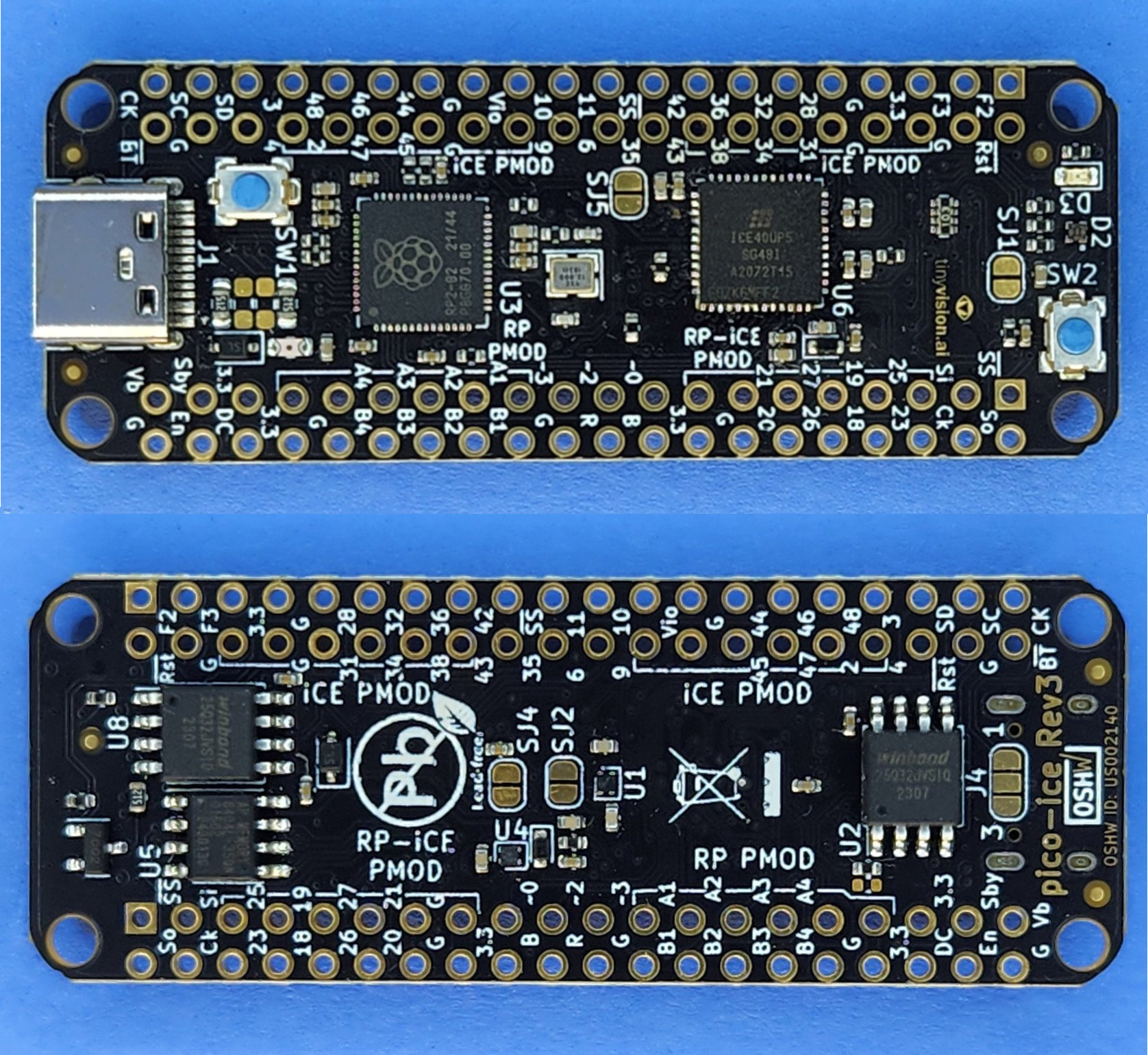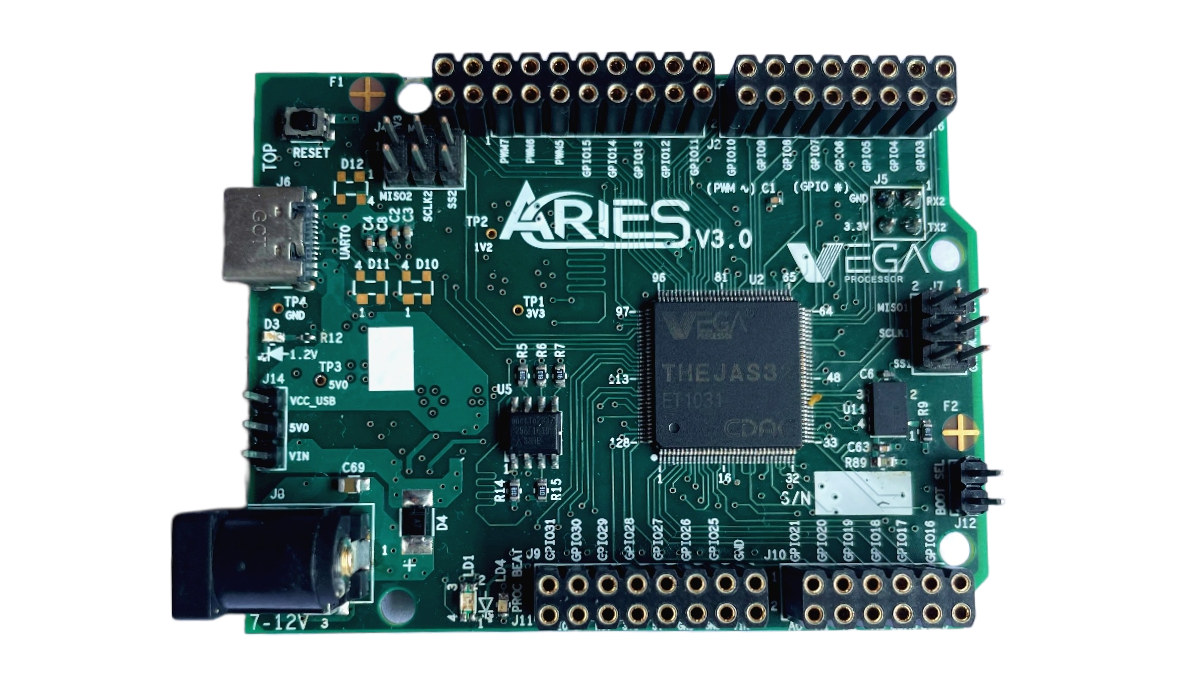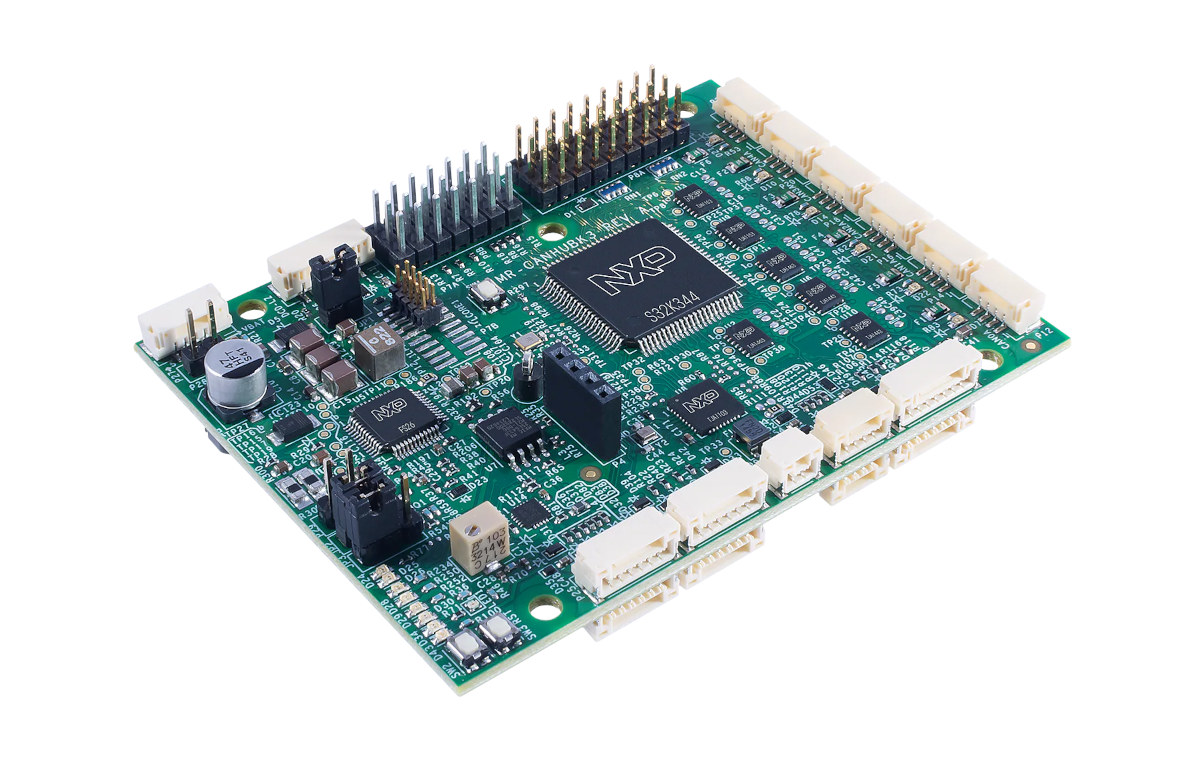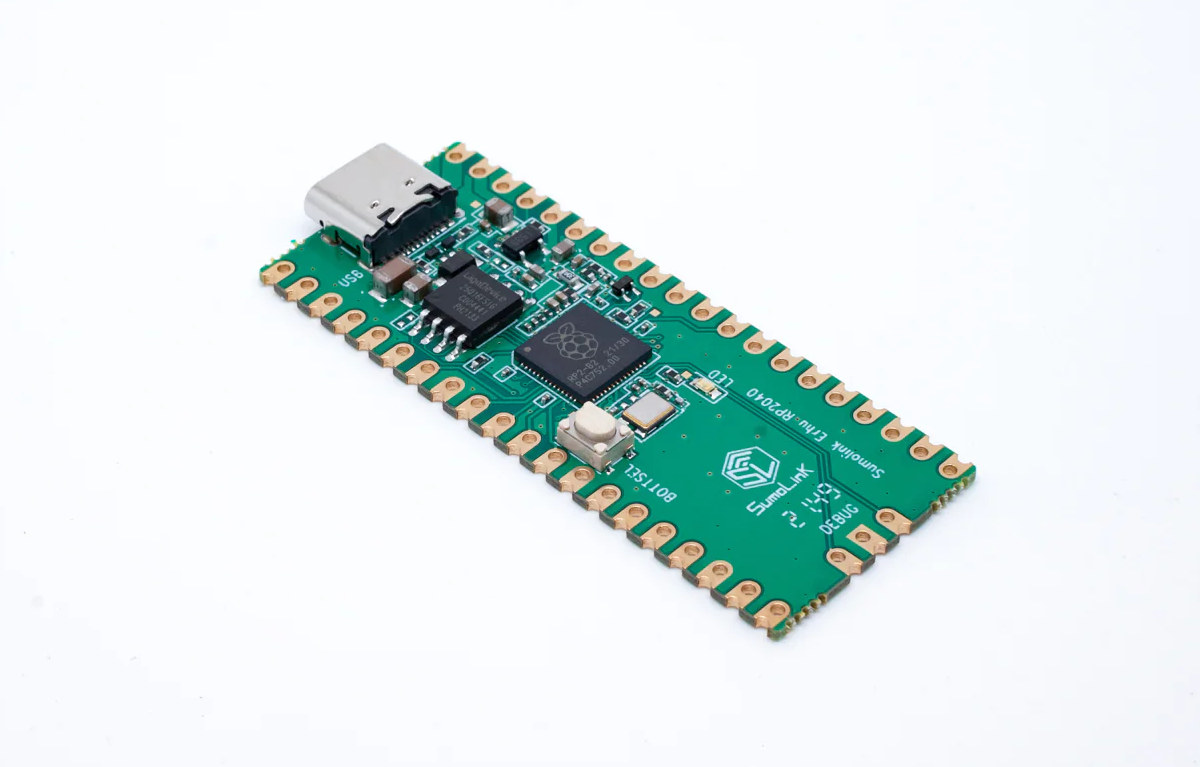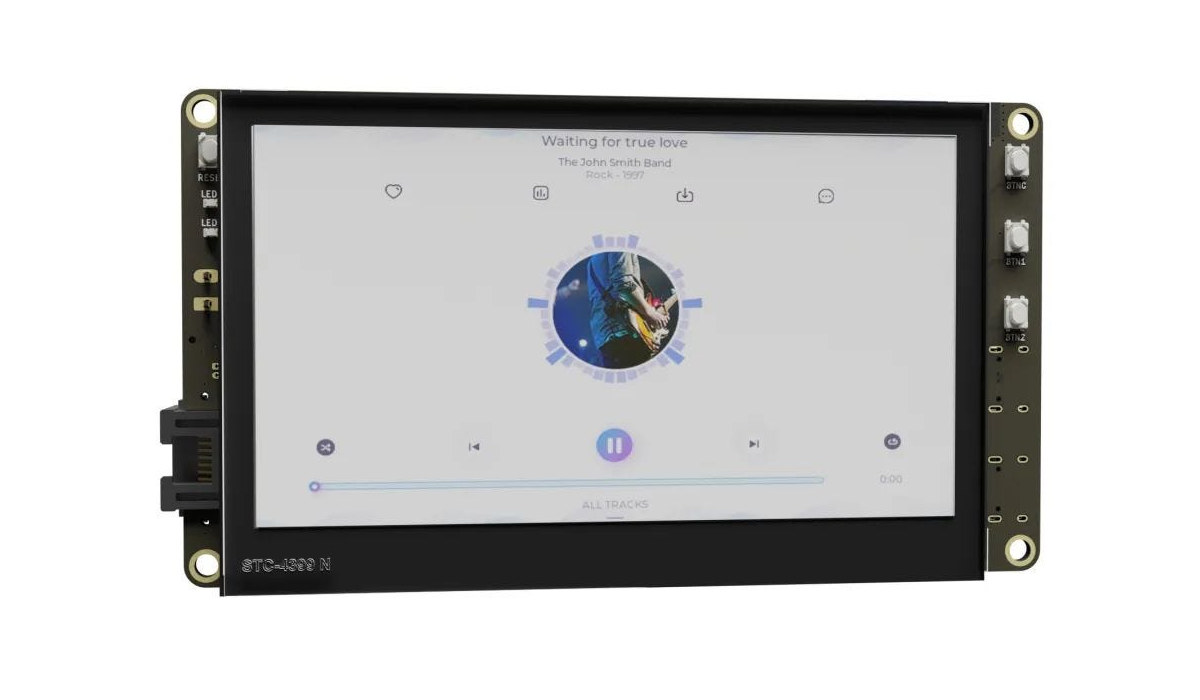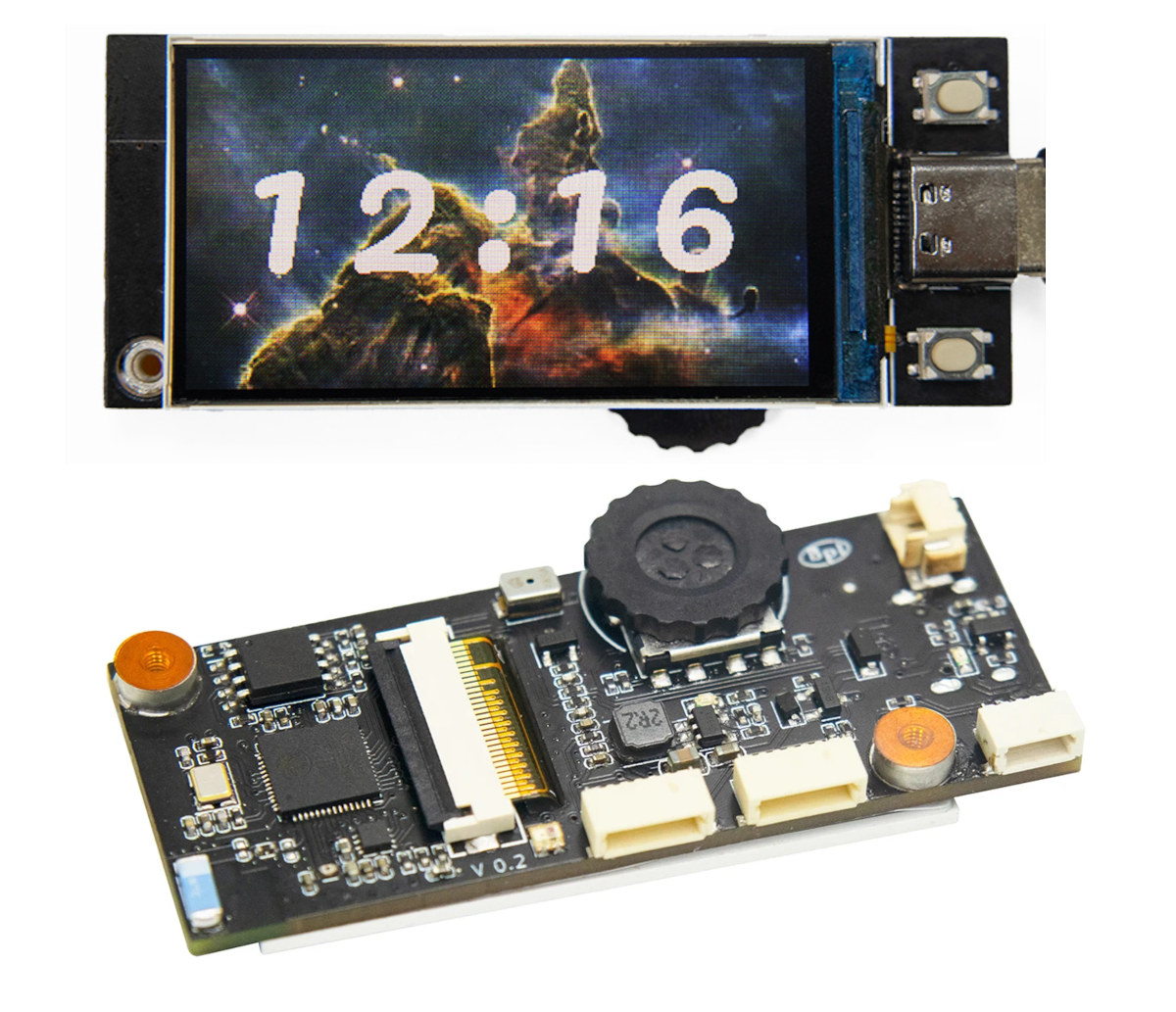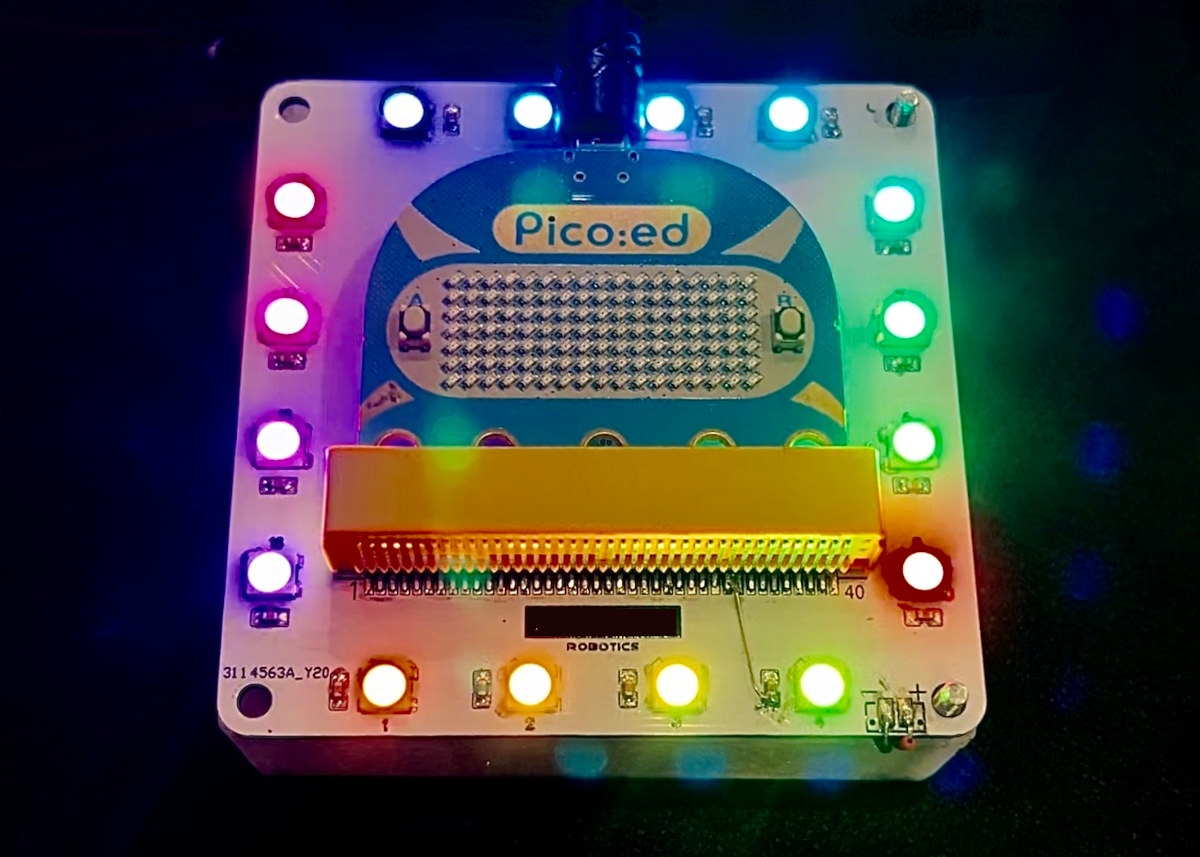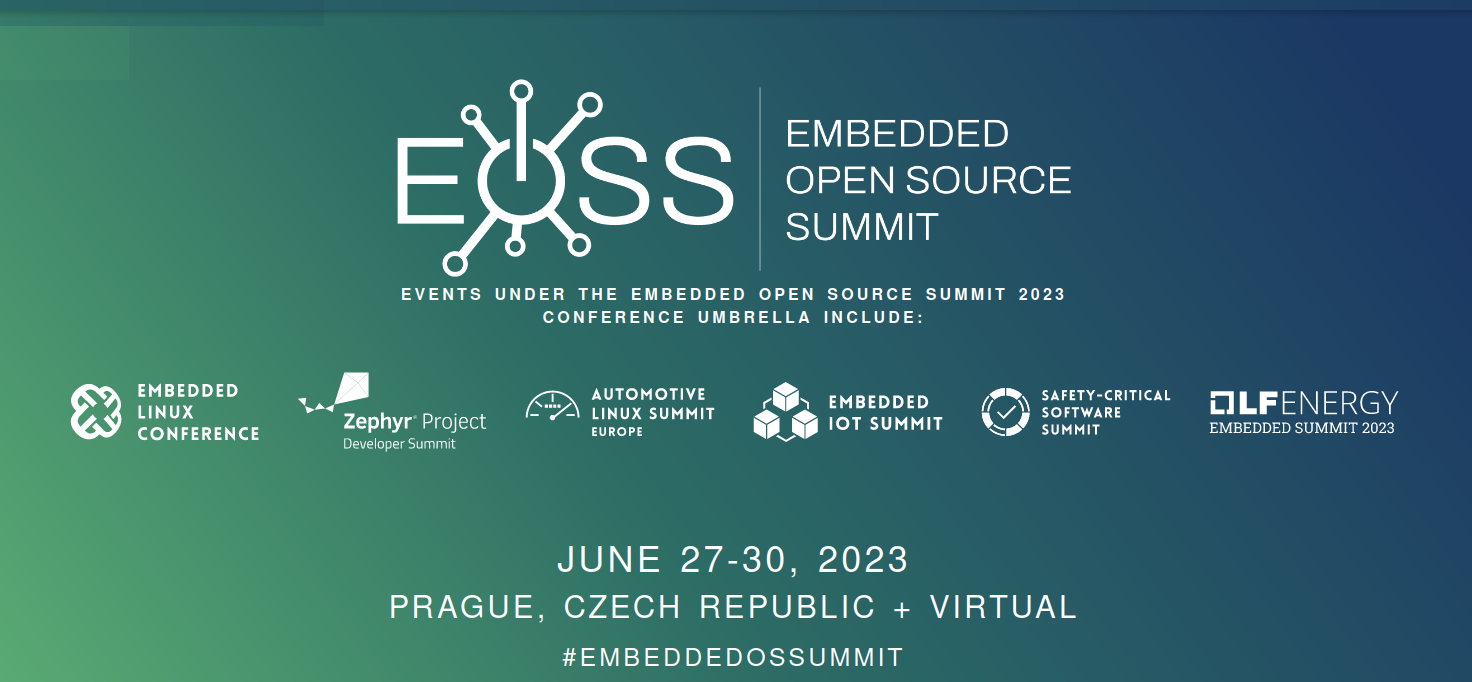tinyVision.ai Pico-Ice is a development board with a Raspberry Pi RP2040 MCU and a Lattice ICE40 UltraPlus 5K FPGA connected through an 8-bit bus. The Arm Cortex-M0+ microcontroller provides the clock for the FPGA and can program the FPGA directly or the dedicated FPGA flash using a drag-drop of a UF2 file. Just a few days ago we wrote about the LILYGO T-FPGA board that combines an ESP32-S3 wireless MCU with a Gowin FPGA connected through a 6-bit bus, and the Pico-Ice board provides a similar option with different chips and without wireless connectivity. Pico-Ice specifications: MCU – Raspberry Pi RP2040 dual-core Cortex-M0+ microcontroller @ 133 MHz with 264KB SRAM with all pins exposed FPGA – Lattice UltraPlus iCE40UP5K FPGA with 5.3K LUTs, 1Mbit SPRAM, 120Kbit DPRAM, 8x multipliers with all pins brought out Memory & storage chips MCU – 4MB QSPI flash FPGA – 4MB QSPI Flash, 8MB low […]
ARIES v3.0 development board features India-made VEGA RISC-V processor
ARIES v3.0 is an Arduino-inspired development board with the made-in-India 100 MHz THEAJS32 ASIC with the VEGA ET1031 RISC-V microprocessor, 256KB of internal SRAM, and various I/Os. Not to be confused by the recent FIVEberry RISC-V SBC made by ARIES Embedded… We first wrote about VEGA RISC-V processors designed in India in February 2022, and at the time, the government worked on five RISC-V processor designs ranging from a single-core 32-bit RISC-V microcontroller-class processor to a Linux-capable quad-core 64-bit out-of-order processor, with the entry-level THEJAS32 and THEJAS64 SoCs based on respectively VEGA ET1031 and VEGA AS1061 cores running on an ARTY A7 FPGA board. But good progress has been made since then, and they have tapped out the THEJAS32 processor and manufactured some development boards such as the ARIES v3.0. ARIES v3.0 development board specifications: MCU – THEJAS32 VEGA ET1031 32-bit 3-stage in-order RISC-V ( RV32IM) microcontroller @ 100 MHz […]
NXP S32K344 evaluation board for mobile robots offers one 100BaseT1, six CAN-FD interfaces
MR-CANHUBK344 is an evaluation board based on NXP S32K344 Arm Cortex-M7 automotive general-purpose microcontroller designed for mobile robotics applications such as autonomous mobile robots (AMR) and automated guided vehicles (AGV) with a 100baseT1 Ethernet interface and six CAN-FD ports. The six CAN bus connectors come in three pairs of CAN-FD, CAN-SIC (signal improvement), and CAN-SCP (secure) interfaces using NXP chips. The board can notably be used for tunneling CAN over Ethernet using IEEE1722, plus the board is equipped with an SE050 Secure element with NFC for authentication, and various general-purpose peripheral interfaces via DroneCode standard JST-GH connectors. MR-CANHUBK344 evaluation board specifications: MCU – NXP S32K344 lockstep Cortex-M7 microcontroller @ up to 160 MHz with 4MB flash, 512KB SRAM, 6x CAN bus interfaces, up to 218 I/Os, AEC-Q100 compliant Ethernet – ASIL-B compliant 100BASE-T1 Ethernet PHY (TJA1103) 6x CAN-FD interfaces with 2x CAN Bus with flexible data rate through TJA144x automotive […]
Sumolink Erhu RP2040 is a $3.60 Raspberry Pi Pico clone with a USB-C port
The Sumolink Erhu RP2040 is a Raspberry Pi Pico clone with the exact same features except the micro USB port has been replaced by a USB-C port that may be preferred by some people, and the Wisdpi claims it is one of the world’s cheapest RP2040 MCU boards at $3.60, although that price does not include shipping. We had seen some other replicas, but most offer something different rather than just the USB-C port. Two examples that come to my mind are the WeAct RP2040 with a USB-C port, but also a Reset button and up to 16MB SPI flash, instead of the 2MB flash in the original board, and the Banana Pi BPI-Pico-RP2040 with an extra I2C connector and an RGB LED. Sumolink Erhu RP2040 specifications: MCU – Raspberry Pi RP2040 dual-core Cortex-M0+ microcontroller @ 133 MHz with 264KB SRAM Storage – 2MB QSPI flash (Note: the specs list […]
$25 Renesas “HMI Board” features RA6M3 microcontroller for RT-Thread & LVGL development
The Renesas HMI board is a Renesas RA6M3 Cortex-M4F development board with a 4.3-inch LCD developed in collaboration with the teams behind the RT-Thread RTOS project and LVGL open-source graphics library. Besides a color display for HMI (Human Machine Interface), the board also features a microSD card for data storage, Ethernet and WiFi connectivity, Arduino headers and PMOD connectors for expansion, a microphone and a speaker, a CAN bus terminal block, and two USB-C ports for debugging and power. Renesas HMI board specifications: MCU – Renesas RA6M3 (R7FA6M3AH3CFB) Arm Cortex-M4F microcontroller @ 120MHz with 2MB Flash, 640KB RAM, TFT controller, 2D accelerator, and JPEG decoder. Storage – MicroSD card slot Display – 4.3-inch LCD (RGB 888) Audio – Microphone and speaker Networking Low-profile 10/100M Ethernet RJ45 port RW007 SPI WiFi module by Shanghai Ruiside Electronic Technology USB – 2x USB Type-C ports Serial – 2-pin CAN bus terminal block Expansion […]
Banana Pi BPI-Centi-S3 – An ESP32-S3 board with an 1.9-inch TFT display and a rotary encoder
Banana Pi BPI-Centi-S3 is an ESP32-S3 WiFi & BLE IoT board with a 1.9-inch color TFT display, a rotary encoder, and a few I/Os, which offers an alternative to the T-Track ESP32-S3 board with AMOLED and trackball we covered a few days ago. The Banana Pi board also comes with a 2MB on-chip PSRAM, an 8MB SPI flash, a USB Type-C port for power and debugging, two buttons, a buzzer, and an RGB LED. Besides powering the board with its USB-C port, you can also connect a LiPo battery with charging support. Banana Pi BPI-Centi-S3 specifications: SoC – Espressif Systems ESP32-S3 dual-core Tensilica LX7 @ up to 240 MHz with vector instructions for AI acceleration, 512KB RAM, 2MB PSRAM, wireless connectivity Storage – 8MB SPI flash Connectivity via ESP32-S3 2.4 GHz 802.11 b/g/n Wi-Fi 4 with 40 MHz bandwidth support up to 150 Mbps Bluetooth Low Energy (BLE) 5.0 connectivity […]
Using Pico:ed V2 board as a replacement for BBC Micro:bit
We’ve received a sample of the Pico:ed V2 board developed by ELECFREAKS and will show how to use it as a replacement for the BBC micro:bit in a project using CircuitPython. We’ve already covered the board in detail with specifications, block diagram, and pinout diagram before, and it’s basically a Raspberry Pi Pico RP2040 board with BBC Micro:bit form factor including a 17×7 Dot Matrix LED display, some buttons, a buzzer, but no wireless connectivity, relying only on USB instead. CircuitPython firmware installation on the Pico:ed V2 board The board supports C/C++, MicroPython, and CircuitPython programming languages, and for this review, we’ve decided to download the CircuitPython UF2 firmware. Press and hold the BOOTSEL button after having downloaded the firmware file… … and connect the board to your computer using a USB cable before releasing the BOOSEL button on the Pico:ed V2 board, which should then show up as the […]
Embedded Open Source Summit 2023 schedule – Zephyr OS, Security, IoT, Embedded Linux, and more
The Linux Foundation has just announced the full schedule for the Embedded Open Source Summit, which will take place on June 27-30, 2023 in Prague, Czech Republic, as well as virtually starting on June 26. Over 175 sessions, birds of a feather (BoF) tracks, and workshops related to embedded and open-source innovation will be presented at the event itself comprised of six micro conferences: Automotive Linux Summit Europe, Embedded IoT Summit, Embedded Linux Conference, LF Energy Embedded Summit, Safety-Critical Software Summit, and Zephyr Project Developer Summit. Even though I’m not going to attend personally, I’ve gone through the schedule to create my own little virtual schedule with some sessions relevant that should be interesting to me and hopefully to CNX Software readers. Monday, June 26 (Virtual sessions) The first day of the event will have a Yocto Dev training in the morning, and a bunch of virtual sessions that are […]


